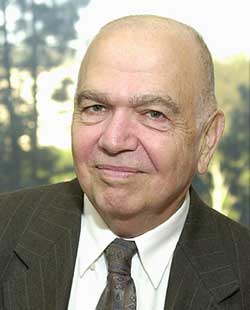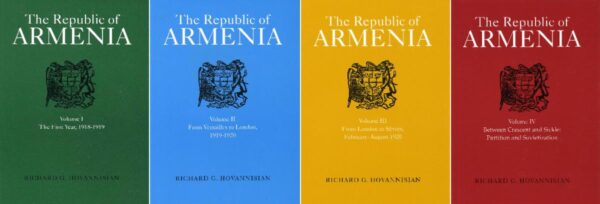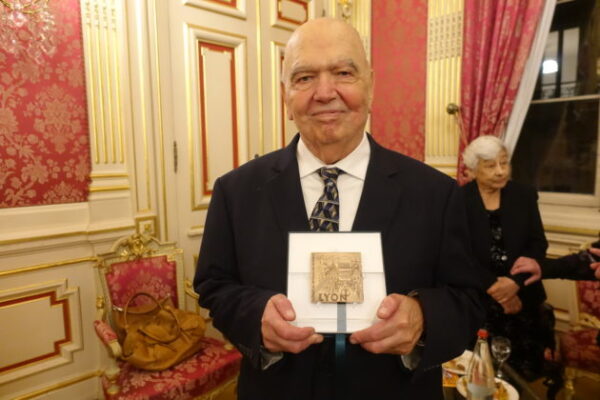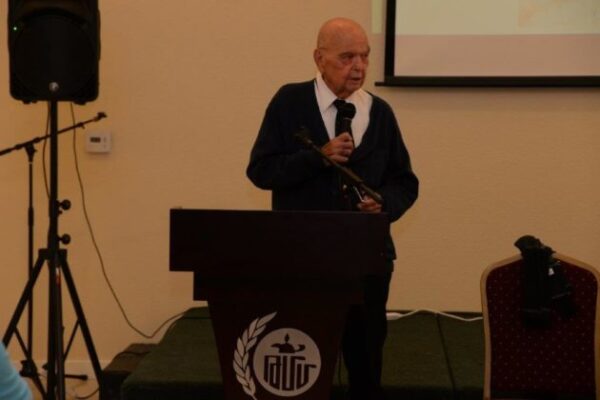LOS ANGELES — Richard G. Hovannisian was a titan in the field of Armenian Studies — an academic discipline that he shaped with his groundbreaking scholarship and professionalism. He died on July 10 at the age of 90, leaving behind a legacy that is impossible to capture.
He lived the life of a public intellectual. He became a historian with a mission — to promote the study of the Armenian Genocide as a consequential 20th century event. His research and publications cemented the place of the first Republic of Armenia in Armenian history and world history. Yet, he never lost sight of his two other responsibilities, teaching and community building.
He was a professor who shaped multiple generations’ ideas and outlook on what it means to be Armenian. He and his life partner, Dr. Vartiter Kotcholosian Hovannisian, were an unrelenting, resolute presence in the developing Armenian-American community of Southern California — which always included the California Central Valley where his Genocide survivor father settled.
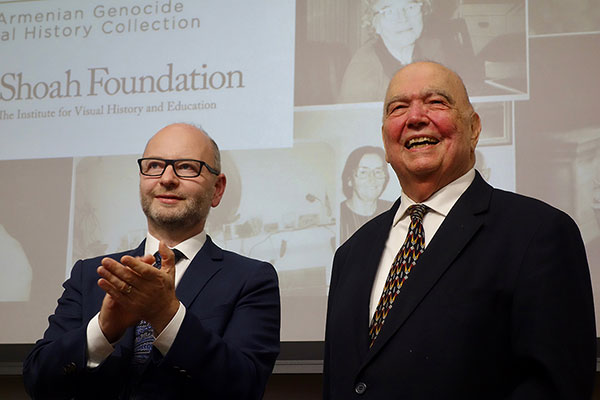
His name has been omnipresent in academia for nearly seven decades, making space for Armenian scholars at institutions once out of reach. Hovannisian’s time at the University of California Los Angeles (UCLA) birthed new scholars through the graduate program he founded in Armenian history. Hovannisian also provided opportunities for students of all disciplines to have hands-on experience collecting, transcribing, and translating the invaluable oral histories of Armenian Genocide survivors. In recent years, he was also a presence at the University of Southern California, after entrusting his large collection of oral history interviews to the university for preservation and public access. The interviews were among the first to be conducted with genocide survivors.
His father, Kaspar Gavroian, was born in in the village of Bazmashen near Kharpert in 1901. Unlike others, he survived the Genocide and arrived in the US. He changed his last name from Gavroian to Hovannisian after his father Hovannes. In 1928, Kaspar married Siroon Nalbandian, the child of Genocide survivors. They had four sons: John, Ralph, Richard and Vernon. Richard was born in Tulare, on November 9, 1932. Being the son of Genocide survivors played an important role in his academic path. In 1957, he married Dr. Vartiter Kotcholosian in Fresno and had four children: Raffi, Armen, Ani, and Garo. Raffi would become the first Minister of Foreign Affairs (1991-1992) of the Modern Republic of Armenia.
Hovannisian began his academic life in 1954 by earning a BA in history, followed by an MA in history from the University of California, Berkeley. In 1966, he earned his PhD from the University of California, Los Angeles (UCLA). His dissertation was published in 1967 with the title Armenia on the Road to Independence which was the precursor to the four-volume magnum opus The Republic of Armenia. Hovannisian played an important role in establishing the teaching of Armenian history at UCLA. In 1987, he became the first holder of the Armenian Education Foundation Chair in Modern Armenian History at UCLA, which after his retirement was named in his honor as the Richard Hovannisian Endowed Chair in Modern Armenian History, with Prof. Sebouh Aslanian as its first incumbent.



